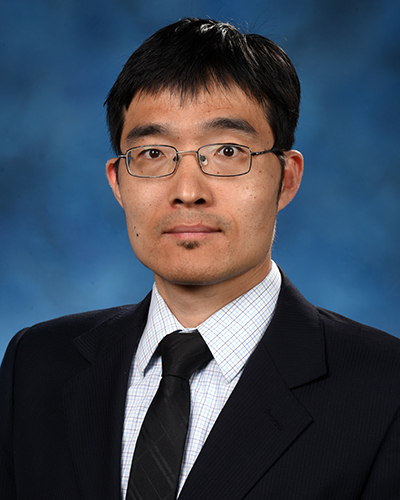Assistant Professor, Department of Diagnostic Radiology and Nuclear Medicine
Phone: (410) 706-3697
Email: yajie.liang@som.umaryland.edu
Biosketch
After receiving his medical degree and PhD from the 3rd Military Medical University in Chongqing, China, Yajie (Kevin) Liang was a postdoctoral scholar at Physiology Institute II at Tübingen University in Germany and prior to that at the Institute for Cell Engineering at the Johns Hopkins University. He later worked for five years as a research specialist at the Howard Hughes Medical Institute’s Janelia Research Campus.
He is now an assistant professor in the Department of Diagnostic Radiology and Nuclear Medicine, a faculty member of the Confocal Core facility of Center for Innovative Biomedical Resources, and a member of University of Maryland Marlene and Stewart Greenebaum Comprehensive Cancer Center at the University of Maryland School of Medicine.
Dr. Liang’s research interests include stem cell therapy, 2-photon imaging, and neurogenesis. His lab addresses the leading challenges in regenerative stroke therapy by developing new therapeutic strategies and novel in vivo imaging methods.
Research Projects
Please select a project title to learn more:
Investigating Dementia-related Alpha-synuclein Strains
Aggregation and spreading of toxic α-Synuclein (αS) are hallmarks of several neurodegenerative diseases associated with cognitive impairment, which exhibit distinct strains underlying the heterogeneity of α- synucleinopathies. We are using our long-term intravital single cell tracking system to characterize the response of brain cells in live mice to dementia-related αS strains. To monitor the endogenous aggregation process, we are developing a nanobody-based chemogenetic fluorescent probe with the potential to be used as clinical diagnostic tools.
Intravital 2-photon Imaging the Integration of Transplanted Embryonic Neurons in a Mouse Model of Cerebral Ischemia at the Subacute Phase
Restorative therapy for stroke with neural cell transplantation is promising but suffers from poor functional integration. We address this issue by transplanting homotopic graft into the highly plastic peri-infarct brain region that allows for the integration of new cells. Two-photon microscopy with state-of-the-art imaging modules will be used to track the fate, function and activity of transplanted neural cells.
NIH funded (NINDS)
Smart Intravital Multiphoton Imaging iPSC-derived Cells Grafted into Ischemic Mouse Brain
The goal is to develop a smart intravital multiphoton imaging method for long-term tracking of neural stem cells for stroke treatment and to advance the understanding about the graft-host interactions in the infarcted brain dynamically at the cellular and molecular level for enhancing the efficacy of neural stem cell therapy of stroke.
3D Microprinting-Enabled Microinjection Needle Arrays for Enhanced Therapeutics Delivery
Research and clinical applications that require gene and cell delivery, including studies and emerging treatments of neurological conditions depend on microinjection technologies. This proposal will examine the efficacy of an innovative 3D microprinting-enabled technology to enhance fundamental performance metrics underlying both gene and cell delivery into brain tissue and eliminate user pain points.
Active Grants and Proposals
| PI/MPI | Grant Title | Total Project Period | Funding Source | Total Costs |
|---|---|---|---|---|
| Yajie Liang | Shedding Light on Functional Heterogeneity of Dementia-related Alpha-synuclein Strains | 8/15/22-7/31/25 | NIA | $463,124 |
| Yajie Liang | Smart Intravital Multiphoton Imaging iPSC-derived Cells Grafted into Ischemic Mouse Brain Assisted by Empowered Helper Cells | 2024-2026 | Maryland Stem Cell Research Fund | $345,000 |
| Kinneret Rand (SeeTrue Technology) |
3D Microprinting-Enabled Microinjection Needle Arrays for Enhanced Therapeutics Delivery into the Brain. | 9/10/23-9/9/25 | NIMH | $88,295 (sub contract) |
Total: $896,419
Publications
View Dr. Liang's publications on Pubmed
Please refer to Dr. Liang's faculty profile for highlighted publications

